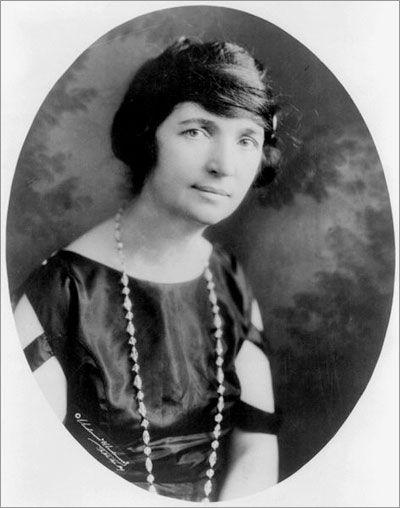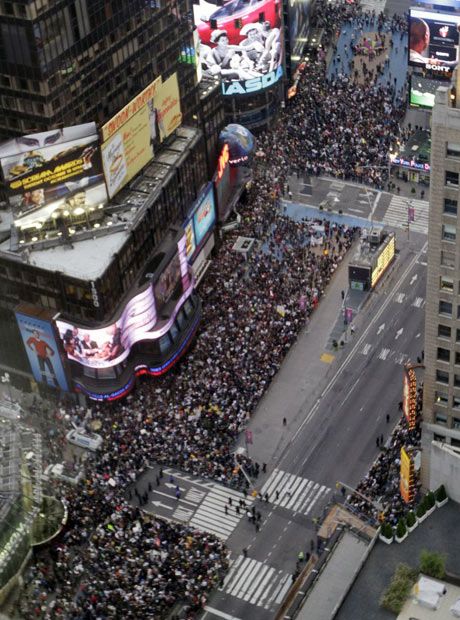What are those OWS people so angry about?
By Glenn Greenwald, Salon
Monday, Oct 17, 2011 9:12 AM Eastern Daylight Time
(G)rowing wealth and income inequality, by itself, would not spark massive protests if there were a perception that the top 1% (more accurately thought of as the top .1%) had acquired their gains honestly and legitimately. Americans in particular have been inculcated for decades with the belief that even substantial outcome inequality is acceptable (even desirable) provided that it is the by-product of fairly applied rules. What makes this inequality so infuriating (aside from the human suffering it is generating) is precisely that it is illegitimate: it is caused and bolstered by decisively unfair application of laws and rules, by undemocratic control of the political process by the nation’s oligarchs, and by a full-scale shield of immunity that allows them – and only them – to engage in the most egregious corruption and even criminality without any consequence (other than a further entrenching of their prerogatives and ill-gotten gains).
Anyone who expressed difficulty seeing or understanding what motivates these protests revealed many things about themselves. None is flattering. The only thing that’s surprising is that these protests didn’t happen sooner and that they’re not more widespread and intense. I think it’s become increasingly clear that that is likely to change, and soon. Like the Arab Spring, the rapid growth of these protests should be a permanent antidote against defeatism. It’s unclear what these protests will accomplish – that still depends on how many people join them and what they cause it to be – but, already, they prove that the possibility always exists for subverting even the most seemingly invulnerable power factions. That hasn’t happened yet, but the possibility that these protests are only in their incipient stages is one of the more exciting and positive political developments in some time. It’s been clear for quite awhile that unrest and disruptions – and the fear which they alone can put in the hearts and minds of those responsible for widespread ills – are absolute prerequisites for meaningful reform (our fundamentally corrupted electoral process certainly can’t and won’t accomplish that). These protests at least reflect the possibility, the template, for that to happen. And anyone expressing confusion about why these protests are erupting is almost certainly someone invested in keeping things exactly the way they are.
Losing Their Immunity
By PAUL KRUGMAN, The New York Times
Published: October 16, 2011
(T)he financialization of America wasn’t dictated by the invisible hand of the market. What caused the financial industry to grow much faster than the rest of the economy starting around 1980 was a series of deliberate policy choices, in particular a process of deregulation that continued right up to the eve of the 2008 crisis.
Not coincidentally, the era of an ever-growing financial industry was also an era of ever-growing inequality of income and wealth. Wall Street made a large direct contribution to economic polarization, because soaring incomes in finance accounted for a significant fraction of the rising share of the top 1 percent (and the top 0.1 percent, which accounts for most of the top 1 percent’s gains) in the nation’s income. More broadly, the same political forces that promoted financial deregulation fostered overall inequality in a variety of ways, undermining organized labor, doing away with the “outrage constraint” that used to limit executive paychecks, and more.
Oh, and taxes on the wealthy were, of course, sharply reduced.
All of this was supposed to be justified by results: the paychecks of the wizards of Wall Street were appropriate, we were told, because of the wonderful things they did. Somehow, however, that wonderfulness failed to trickle down to the rest of the nation – and that was true even before the crisis. Median family income, adjusted for inflation, grew only about a fifth as much between 1980 and 2007 as it did in the generation following World War II, even though the postwar economy was marked both by strict financial regulation and by much higher tax rates on the wealthy than anything currently under political discussion.
…
Money talks in American politics, and what the financial industry’s money has been saying lately is that it will punish any politician who dares to criticize that industry’s behavior, no matter how gently – as evidenced by the way Wall Street money has now abandoned President Obama in favor of Mitt Romney. And this explains the industry’s shock over recent events.You see, until a few weeks ago it seemed as if Wall Street had effectively bribed and bullied our political system into forgetting about that whole drawing lavish paychecks while destroying the world economy thing. Then, all of a sudden, some people insisted on bringing the subject up again.
And their outrage has found resonance with millions of Americans. No wonder Wall Street is whining.

 Congress, and a majority of the American public, had not been supportive of the Reagan administration’s efforts to topple the Sandinista government in Nicaragua. Reagan began a “secret war” to bring down the Nicaraguan government soon after taking office in 1981. Millions of dollars, training, and arms were funneled to the Contras (an armed force of Nicaraguan exiles intent on removing the leftist Nicaraguan regime) through the CIA. American involvement in the Contra movement soon became public, however, as did disturbing reports about the behavior of the Contra force. Charges were leveled in newspapers and in Congress that the Contras were little more than murderers and drug runners; rumors of corruption and payoffs were common. Congress steadily reduced U.S. assistance to the Contras, and in 1984 passed the second Boland Amendment prohibiting U.S. agencies from giving any aid to the group.
Congress, and a majority of the American public, had not been supportive of the Reagan administration’s efforts to topple the Sandinista government in Nicaragua. Reagan began a “secret war” to bring down the Nicaraguan government soon after taking office in 1981. Millions of dollars, training, and arms were funneled to the Contras (an armed force of Nicaraguan exiles intent on removing the leftist Nicaraguan regime) through the CIA. American involvement in the Contra movement soon became public, however, as did disturbing reports about the behavior of the Contra force. Charges were leveled in newspapers and in Congress that the Contras were little more than murderers and drug runners; rumors of corruption and payoffs were common. Congress steadily reduced U.S. assistance to the Contras, and in 1984 passed the second Boland Amendment prohibiting U.S. agencies from giving any aid to the group. The Obama administration has infuriated environmentalists by giving BP the green light to bid for new drilling rights in the Gulf of Mexico.
The Obama administration has infuriated environmentalists by giving BP the green light to bid for new drilling rights in the Gulf of Mexico. It was raided 9 days later by the police. She served 30 days in prison. An initial appeal was rejected but in 1918 an opinion written by Judge Frederick E. Crane of the New York Court of Appeals allowed doctors to prescribe contraception.
It was raided 9 days later by the police. She served 30 days in prison. An initial appeal was rejected but in 1918 an opinion written by Judge Frederick E. Crane of the New York Court of Appeals allowed doctors to prescribe contraception.
Recent Comments